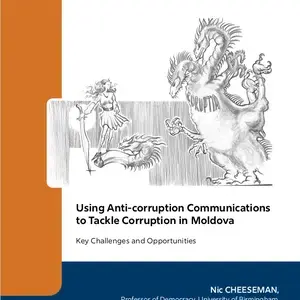In Tbilisi: [email protected], +995 577 77 96 39In Washington, D.C.: [email protected]
TBILISI – Poll results released today by the National Democratic Institute (NDI or the Institute) and CRRC Georgia find that a year into the coronavirus pandemic, Georgians remain concerned about the state of the economy and healthcare. While the public continues to credit the government with managing the pandemic effectively (68 percent, up from 60 percent in December 2020), they remain skeptical of forthcoming vaccinations. Amidst an ongoing political crisis, Georgians are looking to their elected leaders to prioritize policies that address their pressing concerns.
As in previous months, the state of the country’s economy and the impact of Covid-19 remain at the forefront of citizens’ concerns. A quarter of the population reports either losing their job (13 percent) or experiencing salary/income reduction (12 percent) since the start of the pandemic, while a plurality said they remain unemployed. Georgians in the retail, construction, transport, and restaurant sectors were most affected by the pandemic. The public is split when assessing the government’s economic response to the pandemic; 50 percent assess the government’s economic plan as effective and half of those who received financial assistance report it as being sufficient.
As Georgia begins to roll out its vaccination plan, the public remains skeptical. Less than half (42 percent) of Georgians believe that the government's vaccination plan is effective. Only 35 percent would choose to receive a vaccine, if given the option right now; 53 percent said they would not. Vaccine hesitancy is highest among women and individuals under 55. Among those who are hesitant, the main reasons are concerns about the quality of the vaccine (48 percent) and the belief that they can overcome the pandemic without vaccination (20 percent). Georgians, who say they get their news on Covid-19 primarily from television (60 percent) and internet (35 percent), look to medical professionals (74 percent) and the Georgian National Center for Disease Control (NCDC) (68 percent) for trustworthy information.
“While the country continues to endure a political crisis, it is important to demonstrate that the fundamental needs of the public are being met,” said Alan Gillam, NDI Country Director. “Ensuring a smooth rollout of the vaccine and making use of trusted medical professionals to provide the public with accurate information will be critical to the government’s effort to deliver crucial services and safeguard public health. “
Looking ahead, Georgians want their elected representatives to prioritize their concerns. During the upcoming year, the public wants to see the Georgian parliament focused on the economy, healthcare, and education. They expect parties to address issues of inclusion, starting within their own ranks: a majority of Georgians also want to see more women in parliament; approximately half favor equal representation. These priorities are consistent across political affiliation. However, Georgians remain skeptical of the parliament’s willingness to actually address their concerns. A majority does not believe parliament will take into account opinions of people like them (54 percent) and believes that MPs will only serve their own interests (55 percent). The lack of faith in parliament likely contributes to low interest in engagement with the institution. When asked about the preferred form of communication, a plurality (39 percent) said they don’t want to be engaged with the parliament.
NDI surveys public opinion to help Georgian stakeholders diagnose and address issues of public concern by providing accurate, unbiased and statistically sound data. This poll aims to capture the most relevant information to foster the development of responsive policies and governance. A wide range of leaders from across the political spectrum has reported that the polls are important to their work and encourage continued polling. The results reflect data collected between February 17-24, through telephone interviews with a nationwide representative sample of Georgia’s adult population, excluding occupied territories, that included 2,024 completed interviews. The average margin of error is +/- 1.4 percent. Respondents were selected using the random-digit-dial method.
NDI’s survey work is funded by UK aid from the British people.
This poll was carried out by CRRC Georgia.
###
NDI is an independent, nonprofit, nonpartisan organization working to support and strengthen democratic institutions worldwide through citizen participation, openness and accountability in government. More information is available at www.ndi.org.
CRRC-Georgia is a non-governmental, non-profit research organization with a mission to promote evidence based debates on policy issues by providing reliable, up-to-date and accessible data and analysis. More information is available at http://www.crrc.ge




